Select Language

The Reserve Bank of Australia has reduced its policy rate by 25 basis points, bringing it to the lowest level in two years.
This move comes as inflation worries in Australia continue to diminish, providing the central bank with the opportunity to relax its monetary policy.
The benchmark rate has been cut to 3.85%, marking its lowest point since May 2023.
This decision aligns with the predictions of economists who had previously been surveyed.
This article was generated with the support of AI and reviewed by an editor. For more information see our T&C.
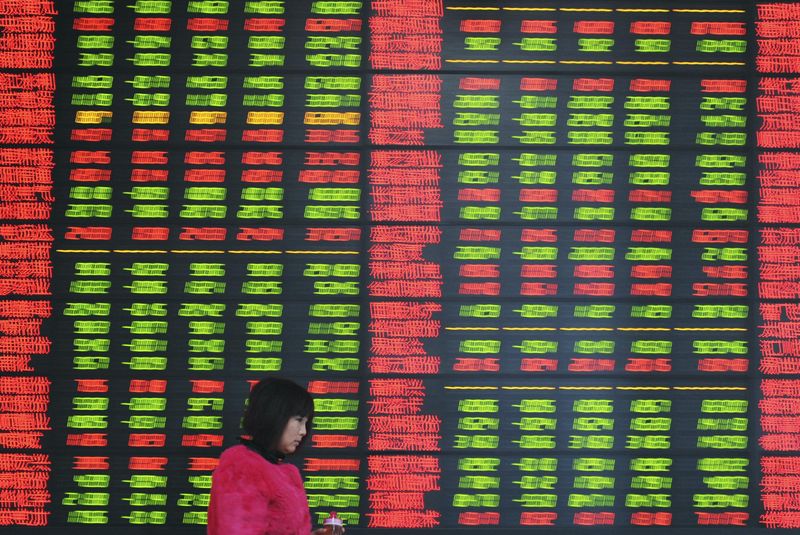
Most Asian stocks rose marginally on Tuesday, with China in the lead after Beijing cut a key lending rate as expected, while Australian shares firmed in anticipation of a widely expected rate cut by the RBA.
Regional markets took middling cues from Wall Street, which ended flat on Monday following a downgrade to the U.S. sovereign credit rating by Moody’s.
But S&P 500 Futures fell 0.2% in Asian trade, while gains in Chinese stocks were also limited after Beijing warned that U.S. controls on chip exports could undermine a trade truce reached last week.
Focus is now on a U.S. House of Representatives vote on a Trump-backed tax bill, as well as any more developments in U.S. trade talks.
Chinese stocks firm after loan prime rate cut; trade discourse in focus
China’s Shanghai Shenzhen CSI 300 and Shanghai Composite indexes rose about 0.3% and 0.2%, respectively, while Hong Kong’s Hang Seng index jumped 1%.
Gains in Chinese markets came after the People’s Bank of China cut its benchmark loan prime rate as expected, bringing the rate further into record low territory.
The cut signaled that Beijing was open to doling out more monetary stimulus to support the economy, although investors were still holding out for more fiscal measures, especially those aimed at boosting consumption.
But gains in Chinese markets were limited by a warning from Beijing that the U.S.’ strict curbs on chip exports to China threatened to undermine progress in a trade deescalation between the two countries.
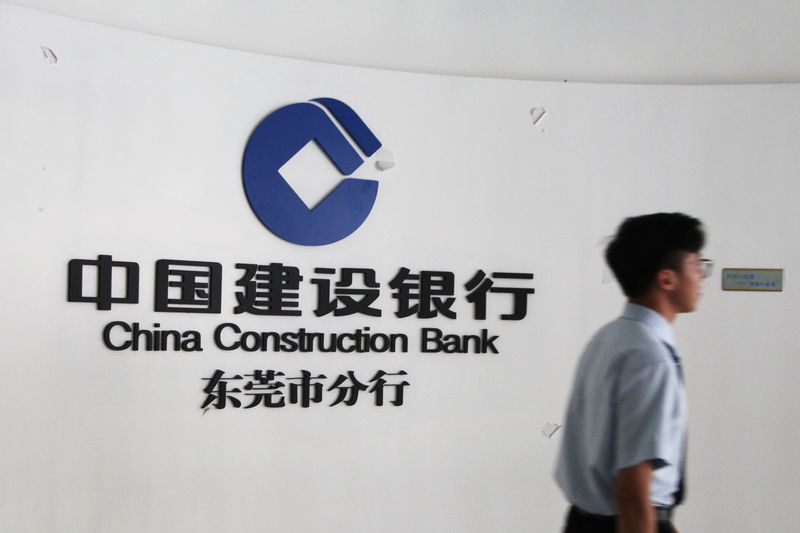
BEIJING (Reuters) -China cut benchmark lending rates for the first time since October on Tuesday, while major state banks lowered borrowing costs as authorities work to ease monetary policy to help buffer the economy from the impact of the Sino-U.S. trade war.
The widely expected rate cuts are aimed at stimulating consumption and loan growth in a weakening economy while still protecting commercial lenders’ shrinking profit margins.
The People’s Bank of China said the one-year loan prime rate (LPR), a benchmark determined by banks, had been lowered by 10 basis points to 3.0%, while the five-year LPR was reduced by the same margin to 3.5%.
Most new and outstanding loans in China are based on the one-year LPR, while the five-year rate influences the pricing of mortgages.
The lending rate cut was announced just after five of China’s biggest state-owned banks said they have trimmed their deposit interest rates.
Industrial and Commercial Bank of China, Agricultural Bank of China (OTC:ACGBF), China Construction Bank (OTC:CICHF) and Bank of China reduced deposit rates by 5-25 basis points (bps) for some tenors, according to rates shown on the banks’ mobile apps.
The banks cut interest rates on time deposits by 5 bps to 0.05%, reduced rates on one-year time deposits by 15 bps to 0.95% and shaved off 25 bps on three-year and five-year time deposits.
These deposit rate reductions should guide smaller lenders in making similar cuts.
Reuters reported on Monday that China’s major state banks plan to cut their deposit rates from Tuesday, citing sources.
The rate cuts are part of a package of measures announced by PBOC Governor Pan Gongsheng and other financial regulators before talks between China and the U.S. in Geneva earlier this month that led to a de-escalation in their trade war.
Global investment banks are raising their forecasts for China’s economic growth this year, after Beijing and Washington agreed to a 90-day pause on tariffs, despite uncertainty around Sino-U.S. trade negotiations.
"We still believe it will be quite challenging for Beijing to achieve its ’around 5%’ growth target unless it rolls out a sizable stimulus package," Ting Lu, chief China economist at Nomura, said in a note this week. "Considering the respite on the trade war, Beijing might be under less pressure to introduce the necessary stimulus and reforms."
Recent economic readings show growth remains patchy and lacklustre.
China’s new home prices were unchanged in April from a month earlier, official data showed on Monday, extending the no-growth trend to nearly two years despite policymakers’ efforts to stabilise the sector. Meanwhile, new bank loans also tumbled more than expected last month.
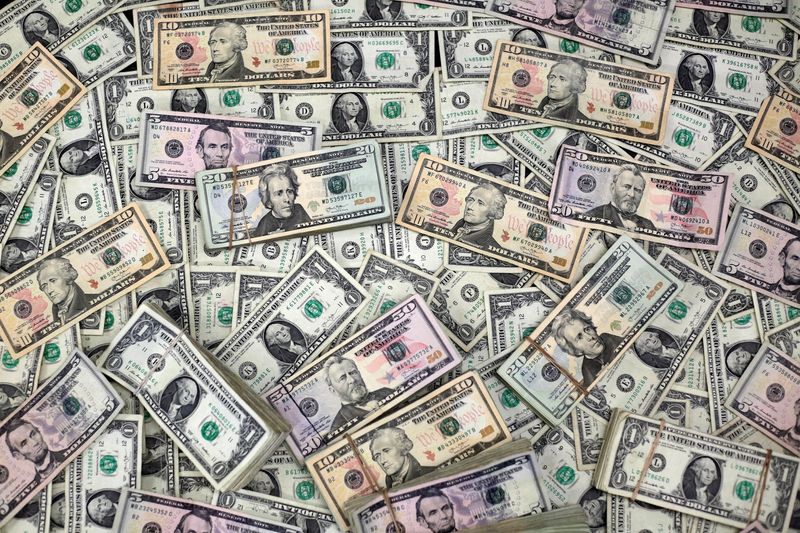
Moody’s downgrade of the U.S. isn’t really about default risk or runaway debt, Macquarie analysts argue, but a political critique of Washington’s inability to course-correct-one that threatens to usher in a prolonged period of “American malaise” and further erode the dollar’s already battered brand as policy uncertainty and ruptured economic norms weigh on global confidence.
“Moody’s downgrade is, effectively, a political assessment, as much as it is an economic one,” Macquarie analysts said in a recent note, highlighting that the agency’s move is less about the risk of outright default and more a signal of Washington’s inability to course-correct on debt and fiscal policy.
While the U.S. is hardly alone in facing a mounting debt burden, Macquarie warns it’s the dollar that stands to lose the most from the downgrade and the breakdown in economic diplomacy that’s marked recent months.
“It could still be the USD that suffers most from the trends that the Moody’s debt downgrade underscores, over time. The reason is that it is still the USD that has the most to lose, given the high perch from which it may begin its journey downward, and it is the currency that has undergone the largest adverse ’perceptions’ shift in the past few months, given the institutional rupture caused by the ’Liberation Day’ announcements.”
The chances of the U.S defaulting on its interest or principal debt payments, even in theory, is extremely slim because the "Fed can always bail out the US government, albeit through inflation," the analysts said. But that is "exactly the political critique" that can hurt the dollar, they added, as it is associated with "greater policy uncertainty, a rupture of economic-diplomatic norms, and adversely changing perceptions of the US’s ’brand’."
The downgrade has already pushed long-term Treasury yields higher, with the 10-year yield climbing above 4.50% as traders react to the news and foreign holders, including China, adjust their U.S. bond portfolios. Macquarie notes.
With the U.S. coming off a 12-year run of dollar strength, Macquarie warns that the transition to a period of “American malaise” could last five to eight years, with the greenback facing a prolonged period of underperformance as investors seek alternatives.
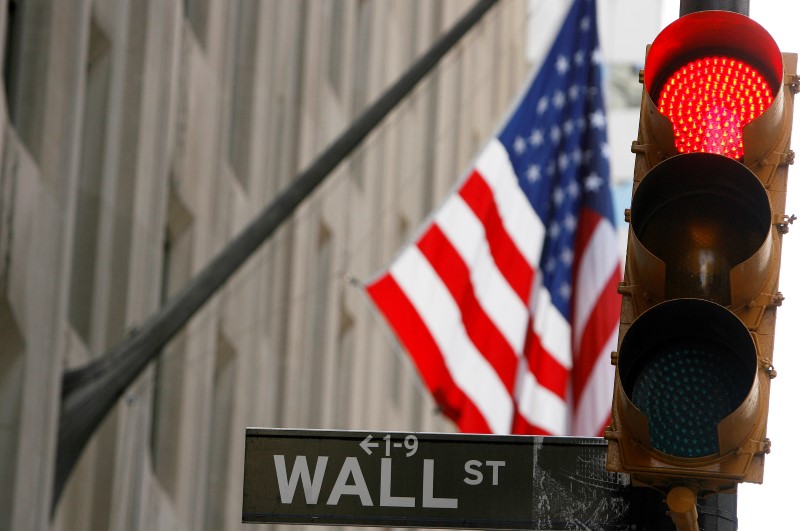
S&P 500 closed higher Monday, recovering early-day losses as investors bought the dip in stocks after Moody’s downgraded its investment grade rating on the U.S., ramping up concerns over slowing economic growth and heightened debt levels.
At 4:00 ET (20:00 GMT), the Dow Jones Industrial Average rose 137 points, or 0.1%, the S&P 500 index was 0.1% lower, and the NASDAQ Composite rise 0.02%.
Moody’s downgrades U.S. rating, cites debt concerns
Credit rating agency Moody’s downgraded the U.S. sovereign credit rating late last week to ’Aa1’ from ’Aaa’, and is the last of the major agencies to cut the prestigious treble-A rating after awarding it in 1919.
The move pushed Treasury yields higher, but Washington downplayed the downgrade, with Treasury Secretary Scott Bessent calling it a "lagging indicator."
Moody’s cited concerns over the country’s growing $36 trillion debt pile, which could be exacerbated by Trump’s plans to cut taxes.
A Congressional committee in the U.S. House of Representatives approved President Donald Trump’s sweeping tax bill on Sunday, setting it up for a House vote this week amid resistance from a group of Republicans.
This bill is estimated to add between $3 trillion and $5 trillion to the national debt over a decade.
Moody’s cut was widely criticized by Trump’s administration, which touted several measures to bring down government spending and debt levels. But the measures, especially the Elon Musk-led Department of Government Efficiency, have so far made limited progress.
Walmart should ‘eat the tariffs’ - Trump
Trump over the weekend said that Walmart (NYSE:WMT) should absorb price increases stemming from higher import tariffs, and warned the retail giant against any price increases.
His warning came after Walmart last week said it will not be able to absorb all of the tariff costs, and will need to increase prices on general merchandise coming in from China. Walmart said that even the lower tariffs agreed to by the U.S. and China last week stood to increase prices.
Walmart’s comments highlighted the growing headwinds faced by U.S. companies dependent on imports, as Trump sticks to his tariff agenda.
Walmart is the world’s biggest retailer and is largely seen as a bellwether for U.S. consumer strength. Its stock fell 1.5%.
Nvidia in spotlight, Reddit slips on downgrade
Nvidia (NASDAQ:NVDA) CEO Jensen Huang on Monday unveiled a host of new artificial intelligence technology -- both for enterprise and consumer applications -- when delivering the keynote address at the Computex AI exhibition in Taiwan.
Speaking for nearly two hours at the event in Taipei, Huang unveiled new AI data center technology, AI cloud and computing products for consumers, as well as AI software for robotic applications.
Unitedhealth Group (NYSE:UNH) rose more than 7% as company insider including new chief executive Stephen Hemsley bought the recent dip in the health insurers stock.
Reddit Inc (NYSE:RDDT) fell 4% after Wells Fargo downgrade the stock to equal weight from overweight at Wells Fargo, citing a threat from Google (NASDAQ:GOOGL)’s roll out of AI-led search.
On the economic front, Fed speakers continued to sound the alarm on policy-driven uncertainty from Washington.
Minneapolis Fed President Neel Kashkari on Monday flagged the Trump administration’s trade policies as significant strain on investor sentiment, undermining the economy’s strong start to the year.
Peter Nurse, Ambar Warrick contributed to this article.
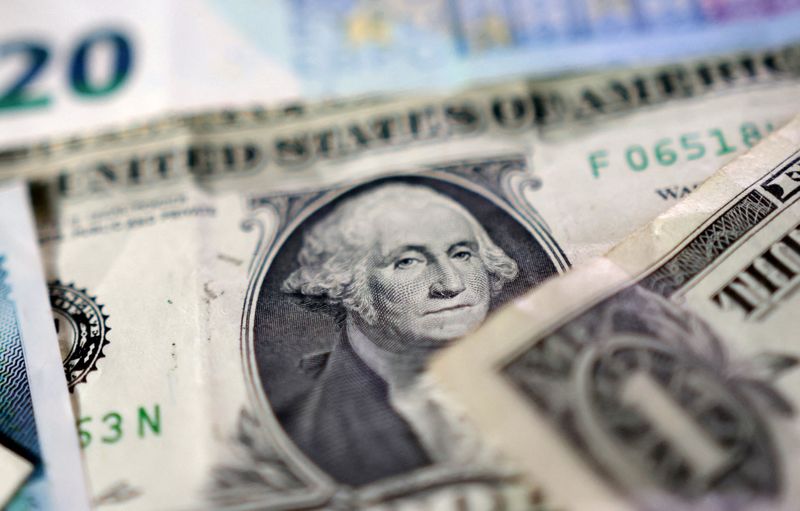
By Rocky Swift and Kevin Buckland
TOKYO (Reuters) -The U.S. dollar dipped to a one-week low versus the safe-haven yen on Monday as markets digested a surprise downgrade of the U.S. government’s credit rating and as trade friction concerns weighed on sentiment.
Australia’s dollar turned higher following three days of declines ahead of Tuesday’s Reserve Bank of Australia policy announcement, with a quarter-point cut widely expected.
Moody’s cut the United States’ top sovereign credit rating by one notch on Friday, the last of the major ratings agencies to downgrade the country, citing concerns about its growing $36 trillion debt pile.
The news saw the dollar turn lower against its major rivals following four straight winning weeks when it was boosted by rising optimism for U.S. trade deals and then a thaw in relations with China that eased fears of a global recession.
The greenback slipped as much as 0.6% to 144.80 yen for the first time since May 9 on Monday, while the euro gained as much as 0.3% to $1.1199.
"While the decision itself is seen as a catch-up to S&P’s move on 5 August 2011 and Fitch’s announcement to do the same on 1 August 2023, Moody’s decision could still feed USD bears," said Paul Mackel, global head of FX research at HSBC.
"Given this rating erosion has been slow moving, the simple takeaway is Moody’s step should not matter for the USD. But one needs to be careful with this assumption."
U.S. Treasury Secretary Scott Bessent said in television interviews on Sunday that President Donald Trump will impose tariffs at the rate he threatened last month on trading partners that do not negotiate in "good faith."
However, a Financial Times report that the United States had begun serious trade talks with the European Union, breaking a long deadlock, offered some hope for additional deals after Washington inked a framework agreement with Britain earlier this month.
Trump has previously said he has potential deals with India, Japan and South Korea as well, although talks with Tokyo seem to be stumbling over car tariffs.
In the market, "there’s a lot of complacency about the ability to pull off deals," said Ray Attrill, head of FX strategy at National Australia Bank (OTC:NABZY).
"Confidence that the U.S. economy is going to weather this is very much open to question."
Trump cleared a hurdle towards passing a sweeping tax cut bill that would add an estimated $3 trillion to $5 trillion to the nation’s debt over the next decade, after winning approval from a key congressional committee.
The dollar declined 0.2% to 0.8358 Swiss franc, another safe-haven currency. Sterling added 0.1% to $1.3297.
"The focus on U.S. growth risks and the U.S. administration’s policy agenda may have put the U.S. safe-haven status in question," said Mahjabeen Zaman, head of foreign exchange research at ANZ.
The Australian dollar edged up 0.1% to $0.6413 after sliding more than 1% over the prior three sessions.
Markets have priced in a certainty of a quarter-point cut to the RBA’s 4.10% cash rate on Tuesday, as slowing inflation allows policymakers to respond to rising global risks.
The central bank’s guidance will be key, as investors have reduced their expectations for rapid-fire rate cuts in the coming months following the Sino-U.S. tariff truce and robust Australian employment data.
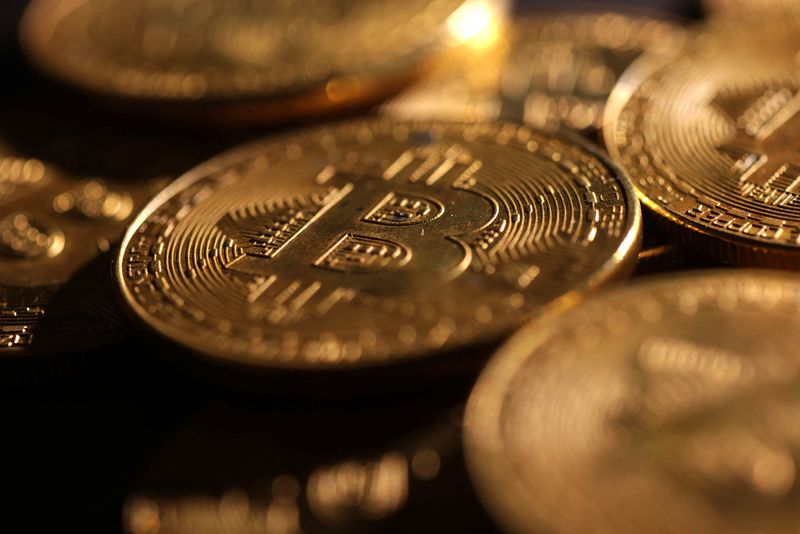
Bitcoin extended gains on Monday, hovering near a four-month high, supported by easing global trade tensions and improving macroeconomic signals, as investors also weighed Moody’s downgrade of the U.S. sovereign credit rating.
The world’s largest cryptocurrency rose 1.4% to $104,815.5 by 22:51 ET (02:51 GMT), after jumping past $107,000 earlier in the session.
The token reached its highest level since late January 2025 and was just shy of breaching its all-time high of $109,228.
Bitcoin rally backed by macro shifts, regulatory tailwinds
Bitcoin has surged more than 11% this month, mostly driven by optimism over easing trade tensions between the world’s two largest economies.
Several other factors also contributed to this rise. Last week’s subdued inflation prints from the U.S. bolstered expectations of a Fed rate cut this year, but investors were still cautious about a tariff-induced reacceleration in inflation.
Lower inflation and the potential for reduced interest rates typically weaken the U.S. dollar, making alternative assets like Bitcoin more attractive.
Institutional investments have also played a significant role; for instance, Strategy Inc (NASDAQ:MSTR) recently acquired 13,390 BTC for $1.34 billion, highlighting growing corporate interest in Bitcoin as a strategic asset.
Major exchanges were also expanding their crypto offerings. Coinbase Global Inc (NASDAQ:COIN) became the first digital asset player to join the S&P 500 index.
Bitcoin’s rally was further supported by optimism over a favorable regulatory environment under the U.S. Securities and Exchange Commission (SEC) Chair Paul Atkins.
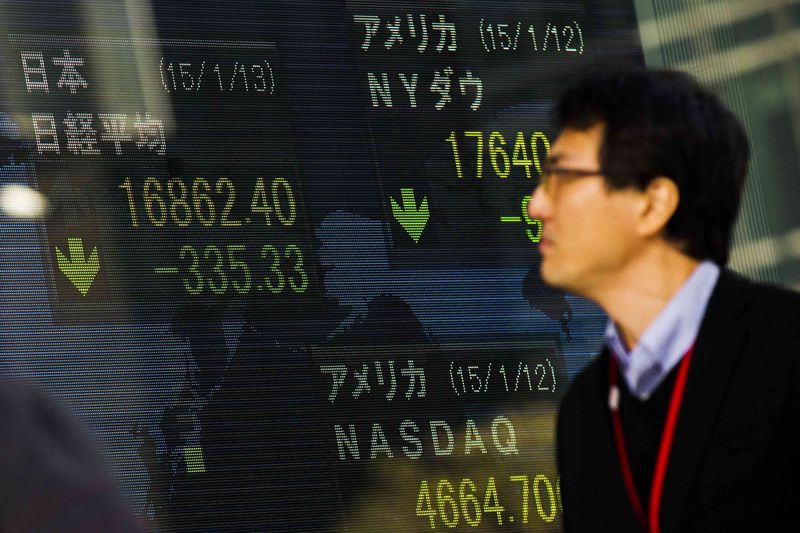
Most Asian stocks fell on Monday as a U.S. rating downgrade and mixed economic prints from China kept investors on edge over slowing growth in the world’s largest economies.
Regional markets fell tracking steep losses in U.S. stock index futures, with S&P 500 Futures falling 0.8% in Asian trade. This came after Moody’s downgraded the U.S.’ Aaa investment grade rating over the weekend, citing concerns over stretched government debt and a lack of clear measures to address the issue.
The downgrade weighed on sentiment, which was already cooling as a stock rally sparked by a deescalation in the U.S.-China tariff exchange petered out towards the end of last week.
Focus was now on more economic signals due in the coming days, including a Reserve Bank of Australia meeting, Japanese consumer inflation data, and a host of U.S. Federal Reserve speakers.
Chinese stocks trim losses, but econ. data mixed for April
China’s Shanghai Shenzhen CSI 300 and Shanghai Composite indexes lost about 0.4% and 0.1%, respectively, while Hong Kong’s Hang Seng index fell 0.6%.
All three indexes trimmed some of their intraday losses after data showed China’s industrial production grew more than expected in April, despite headwinds from steep U.S. trade tariffs.
But other economic indicators still showed cracks in Asia’s biggest economy. Retail sales grew less than expected, pointed to sustained weakness in consumer spending, while fixed asset investment- a gauge of business spending- also missed growth expectations.
Monday’s data highlighted sustained difficulty for the Chinese economy, as Beijing struggles to shore up growth and consumer spending. While the U.S. and China did agree to slash their trade tariffs against each other last week, their tariffs against each other still remained relatively high.
Asia stocks drift lower, RBA rate cut in focus
Broader Asian markets largely retreated on Monday, as sentiment was quashed by weak signals from the world’s biggest economies.
Australia’s ASX 200 was flat, with local investors awaiting the conclusion of a RBA meeting on Tuesday.
The RBA is widely expected to cut interest rates by 25 basis points, amid continued signs of cooling inflation in the country.
But analysts expect the RBA to sound hawkish on future rate cuts, given that the central bank is still grappling with a host of uncertainties- over Australia and the global economy.
Japan’s Nikkei 225 and TOPIX indexes fell 0.3% and 0.1%, respectively, mildly extending losses after a dismal gross domestic product print on Friday.
Japanese consumer inflation data for April is due later this week, and is widely expected to factor into the Bank of Japan’s plans for future interest rate hikes.
South Korea’s KOSPI fell 0.7%, while Singapore’s Straits Times index shed 0.3%.
Gift Nifty 50 Futures futures for India’s Nifty 50 index fell 0.3%, pointing to a weak open for the index after it clocked stellar gains last week.
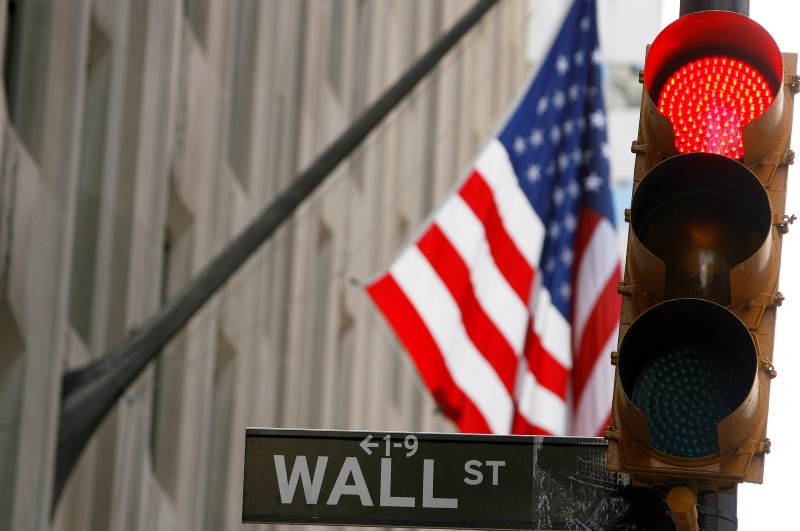
U.S. stock index futures fell on Sunday evening after Moody’s downgraded its investment grade rating on the U.S., ramping up concerns over slowing economic growth and heightened debt levels.
Comments from President Donald Trump’s administration that some U.S. companies, specifically Walmart, will have to absorb his trade tariffs, also kept investors fretting over the impact of the levies on corporate earnings.
Futures fell after Wall Street clocked a positive session on Friday, as a deescalation in the U.S.-China trade war sparked an extended rally in risk-driven stocks. But this rally was seen slowly petering out by Friday.
S&P 500 Futures fell 0.6% to 5,942.25 points, while Nasdaq 100 Futures fell 0.5% to 21,393.50 points by 19:52 ET (23:52 GMT). Dow Jones Futures fell 0.6% to 42,489.0 points.
Moody’s downgrades US rating, cites debt concerns
Moody’s downgraded the U.S. sovereign credit rating on Friday to Aa1 from Aaa, bringing the rating one notch lower from its highest rating.
The ratings agency cited concerns over the country’s growing $36 trillion debt pile, which could be exacerbated by Trump’s plans to cut taxes.
Moody’s cut was widely criticized by Trump’s administration, which touted several measures to bring down government spending and debt levels. But the measures, especially the Elon Musk-led Department of Government Efficiency- have so far made limited progress.
Trump’s trade tariffs, which he claims are aimed at increasing federal revenue and reducing the deficit- also sparked concerns over the U.S. economy, with turmoil in the bond market spurring Trump into postponing his plans for reciprocal trade tariffs.

LONDON (Reuters) -Asking prices for homes put up for sale in Britain have risen by the least for the late spring period since 2016, according to data published on Monday that added to signs of a slowdown in the country’s housing market after a tax break ended in April.
The average price for houses and apartments advertised between April 6 and May 10 rose by 0.6% from a month earlier and prices were up by 1.2% from the same period last year, property website Rightmove (OTC:RTMVY) said.
The price increase pushed the average price to a new record high of just under 380,000 pounds ($505,000). But it represented the slowest monthly rise for the time of year in nine years.
These relatively subdued price increases - which are well below the pace of average wage growth and consumer price inflation over the past year - contributed to a 5% annual rise in completed sales for the latest period, Rightmove said.
The price weakness reflected the highest number of homes for sale in a decade, while demand in April was down 4% compared with April 2024, hit by the end of the tax incentive for purchases of cheaper homes and for first-time buyers on April 1.
The year-on-year fall in demand was the first so far in 2025. But there were signs that April’s lull would prove temporary as interest among buyers picked up in early May.
The Royal Institution of Chartered Surveyors has previously said Britain’s housing market slowed in April after the end of the tax break which pushed up demand earlier in 2025.
($1 = 0.7524 pounds)

